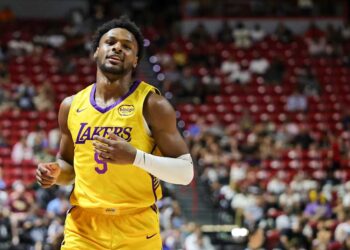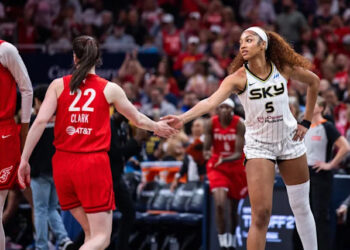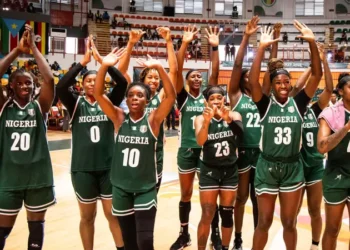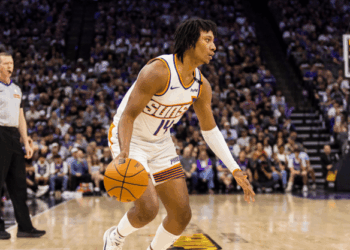LeBron James is one of the greatest basketball players in history, and his presence has been both a blessing and a high-pressure situation for any team he’s played on. For Rob Pelinka, the general manager and vice president of basketball operations for the Los Angeles Lakers, working with LeBron has been a career-defining experience—but not without its challenges. With retirement looming closer for the 39-year-old superstar, there’s increasing speculation about what a LeBron-less Lakers franchise would look like. Surprisingly, LeBron’s retirement might actually be a positive turning point for Rob Pelinka’s front office vision and long-term legacy.
Pelinka’s Tenure in the LeBron Era
Pelinka has held a high-ranking executive role with the Lakers since 2017. When LeBron joined the team in 2018, it shifted the franchise’s entire focus. From that point forward, the Lakers were no longer in a rebuilding phase. They were in win-now mode. Pelinka had to pivot from building a young, organic core to crafting a veteran-heavy roster designed to complement LeBron and deliver immediate success. That resulted in the 2020 NBA Championship in the Orlando bubble, which validated Pelinka’s all-in strategy.
However, since then, the Lakers have struggled to replicate that success consistently. Between injuries, questionable roster construction, and trades that didn’t pan out—like the Russell Westbrook experiment—Pelinka has faced heavy criticism. But it’s important to understand that many of his decisions were influenced or even driven by LeBron’s preferences. LeBron has always been known to exert considerable influence over roster decisions, sometimes indirectly acting as a shadow GM.
Freedom to Build Without LeBron’s Shadow
If LeBron retires, Pelinka would finally have the freedom to make bold decisions without the need to appease one of the most powerful voices in sports. That autonomy could allow Pelinka to implement a coherent long-term vision rather than making short-term decisions centered around maximizing LeBron’s final few years. It’s the difference between constantly patching a tire and building a new car altogether.
Without LeBron, Pelinka would be free to prioritize younger talent, develop a more balanced roster, and make trades or draft picks based on the franchise’s future instead of chasing immediate titles. The pressure to win now would ease, giving him the chance to actually manage like a traditional general manager, focusing on growth, sustainability, and culture-building.
Financial and Cap Flexibility
LeBron’s presence on the roster comes with a hefty price tag. He is one of the highest-paid players in the league, and his contract limits what the Lakers can do in free agency. If he retires, the Lakers could suddenly find themselves with much-needed cap flexibility. That could mean pursuing multiple mid-level stars or offering max contracts to younger cornerstones to rebuild the roster strategically.
This financial reset would empower Pelinka to reshape the team creatively. Whether it’s retaining Anthony Davis as a franchise player or trading him for future assets, Pelinka would have options—something he’s lacked while navigating around LeBron’s needs and contract.
A True Test of Pelinka’s Vision
Perhaps the most compelling reason why LeBron’s retirement could be good news for Rob Pelinka is that it would finally allow him to showcase his own basketball philosophy. For years, his moves have been either second-guessed because of LeBron’s involvement or overshadowed by the superstar’s profile. A post-LeBron era could serve as Pelinka’s audition to prove he’s more than just a caretaker GM during the LeBron years.
He can build a team in his image, implement a player development system, and possibly re-establish the Lakers as a franchise that grows its own stars—much like the Golden State Warriors did with Stephen Curry, Klay Thompson, and Draymond Green.
The Narrative Shift
Public perception is a powerful thing in professional sports. Right now, Pelinka’s resume is often framed in the context of his relationship with LeBron. But if he successfully guides the Lakers into a competitive, sustainable future after LeBron, he could rehabilitate his image and emerge as one of the more respected executives in the league.
A successful rebuild could even turn him into the architect of a new Lakers dynasty—something fans and ownership would celebrate for years to come.
Conclusion
While LeBron James’ retirement would mark the end of an iconic chapter in Lakers history, it might open the door to a new beginning for Rob Pelinka. Free from the constraints of managing around a generational superstar’s preferences and timeline, Pelinka would gain the freedom, flexibility, and space to define his own legacy. And in doing so, he could set the Lakers up for another era of greatness—this ti
me, one entirely of his own making.











